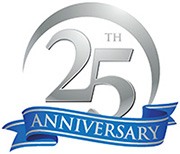PureAire Receives CE Approval on its Oxygen Monitor with 10+ Year Sensor.
- By : PureAire Monitoring Systems
- Posted on : July 14, 2012
- News Room
PureAire Monitoring systems, the proud manufacture of their oxygen monitor has received a CE approval. The recent CE approval is monumental for PureAire selling to European countries. PureAire has been selling their O2 monitors in the USA for over 11 years. With a larger demand from their clients it was certain a CE approval would be beneficial to their product line, especially in Europe. PureAire’s oxygen monitor is highly revered for its 10+ year sensor requiring no replacement sensors, calibration, or maintenance.
When PureAire’s VP of Sales, Brandon Alan was asked, why is your O2 monitor different? Brandon explained the background of oxygen monitors; he discusses there is a lengthy maintenance process required to have a properly functioning monitor, until we, PureAire came out with the Aircheck Oxygen Monitor.
Brandon States, “About 95% of all Oxygen Monitor manufacturers use a continuous depleting sensor for O2 their readings. Clients will replace sensors on average from 12-18 months at $250 per sensor, and requires quarterly calibrations if their lucky. We have overcome the burden for our clients, and have provided an O2 monitor that is ultimately hassle free by using the zirconium oxide sensor. Gaining recognition of PureAire’s oxygen monitors has been an uphill battle, but companies are catching on quickly.”
So, where might you find Oxygen monitors being used?
Brandon: “Oxygen monitors are used in areas where the client may be worried for their safety due to a potential low oxygen level. More recently MRI rooms have been a risk due to the helium storage in the large magnet MRI scanners. Most people are not aware of the risks associated with helium. Most people joke if there was a leak of helium, they would talk like Mickey Mouse. Though, I do find humor in high talking Walt Disney characters, this can be a very serious matter. Our typical oxygen monitor client uses liquid nitrogen cylinders, nitrogen dewars combined with confined spaces, and laboratories containing cryogenics. The three largest Cryogenic gases (Oxygen depleting gases) are Nitrogen (N2), Argon (Ar), Helium (He), and Carbon dioxide (CO2).”
How do you see the CE approval helping your oxygen monitors sales?
Brandon: “I anticipate once the message gets out that we have a CE approval, European companies will start to take notice of our monitors. We understand in order to sell our products to other European countries we must have an approval. I am hoping companies will use our oxygen monitors based on our technology. Were hoping the old throw away sensor technology becomes an idea of the past in Europe, and our O2 monitor with 10+ year sensor becomes the product for the future.”



